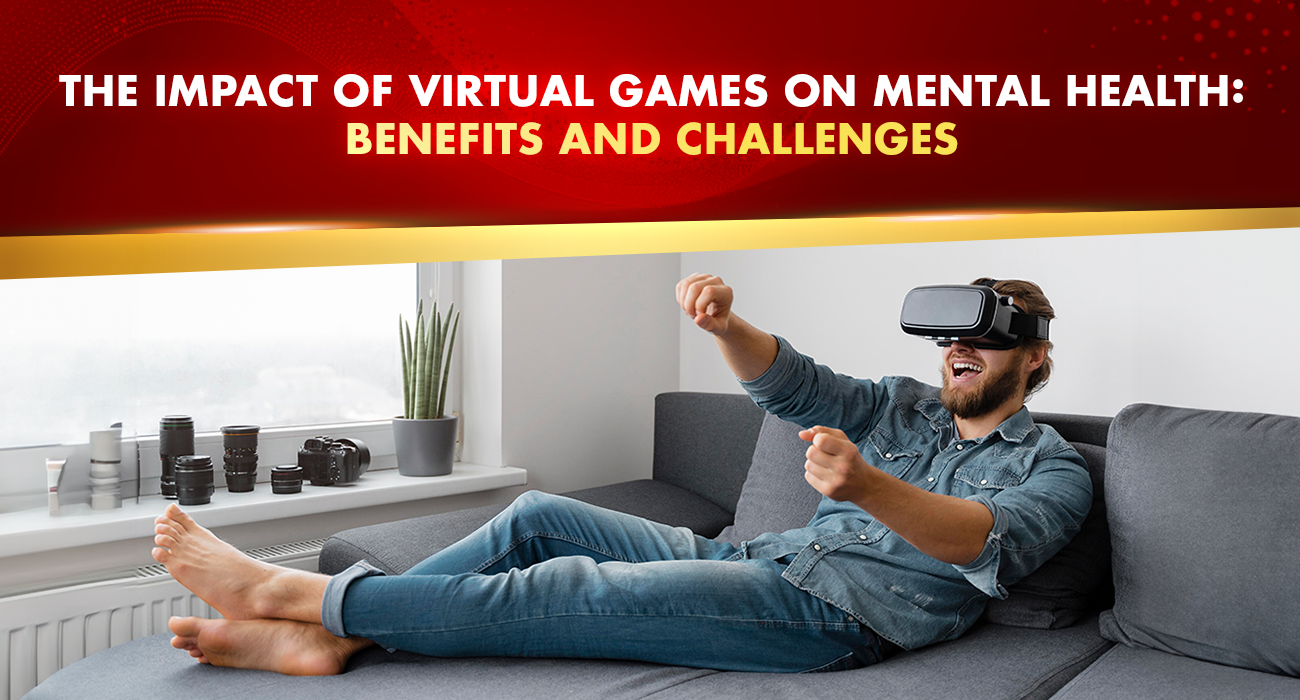Virtual games represent some of the newest evolutions toward contemporary forms of pastime enjoyment, providing diversity to a global audience. Some of these products have included complex multiplayer worlds and more casually focused games for mobile devices. Meanwhile, any other phenomenon with growing pervasiveness has raised questions regarding mental health ramifications associated with virtual games. However, gaming presents numerous benefits that call for being taken seriously.
Benefits of Virtual Games on Mental Health
- Temporary Uplifting and Relief from Stress and Calming
The primary reason people turn to virtual games is to seek relief from daily stressors and calm down. For some, the time that is spent on games is a respite from a worrying situation; they sit back, focus on their objectives, and forget their immediate problems. Those individuals who engage in calming games with more soothing graphics and gameplay can work to reduce stress levels.
- Improvement in Cognitive Skills
Some games can improve cognitive functions, especially strategy and puzzle-based ones. Those that involve critical thinking, problem-solving, and strategic planning are referred to as mentally sharpening games. These games offer exercises that help develop the mind in terms of memory, attention to detail, and even multitasking. In some cases, the virtual games have even been applied as part of therapeutic interventions for cognitive rehabilitation.
- Social Interactions
Multiplayer online games that encourage interaction and communication have many social aspects. Players share with other people from different parts of the world. They make friends, build teamwork, and create long-term relationships. The virtual connections that emerge here help alleviate loneliness. For those people who are shy or fearful of the actual world, their gaming site becomes an easygoing environment in which to relate with other people.
A majority of video games contain layered, narrative-heavy stories with plots that draw an emotional response from players. Such tales could be about the hero on a quest or someone going through a life-changing event, and people are left with a sense of sympathy, connected emotionally to the role. Games are often used as an outlet to help players work through feelings, sometimes aiding them in finding improved techniques for emotional management.
Mental Health Concerns of Virtual Games
- Addiction and Overuse
While gaming is entertaining, excessive time spent playing results in addictive behaviors. The World Health Organization has even classified video game addiction as a mental health disorder. Long hours of game time can interfere with daily routines and patterns related to sleep and physical well-being. Depression, anxiety, and social withdrawal develop over time.
- Over Something Innocuous Causing Anxiety and Aggression
Fast-paced games or graphic violence in certain games may lead to increased stress, anxiety, or aggression. To get the upper hand in games, participants are often put under tremendous pressure, and due to the competitive environment that those games have, many players become angry or even aggressive. Studies have shown that playing violent games may make players desensitized toward aggression, and such behavior may influence the reality of their reactions.
- Social Alienation from Normal Day-to-Day Interactions
However, online gaming, even though it allows for social interaction, at times, leads to isolating users from face-to-face interaction; developing then a world of exclusivity would only work towards increasing feelings of loneliness and estrangement in the long haul for some people.
Virtual games and mental health can be both beneficial and harmful. For it to be healthy and enjoyable, players need to keep things in perspective. While tools like khelraja provide avenues to engage in online gaming safely, it is crucial that gamers grasp where revelry ends and self-indulgence begins. The advantages and disadvantages are knowledge to prevent them from falling into the gaming category, which will ruin their mental health when they play the game, whether rationally or irrationally.
Also read: The Future of Augmented Reality in Virtual Games: Trends to Watch






